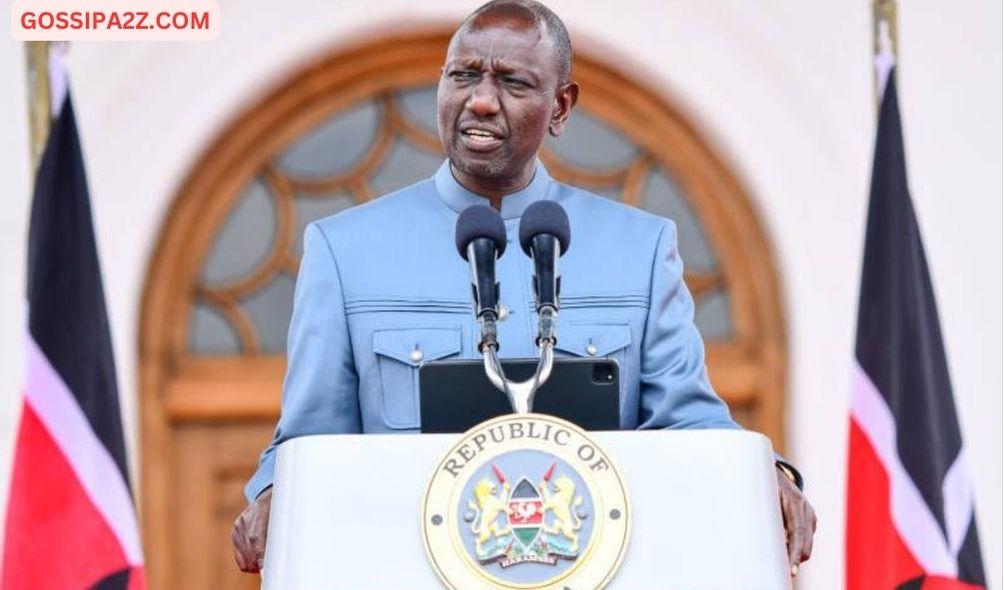Kenyans Advised on How to Dissolve Govt And Fire Ruto As President
Wednesday, former presidential candidate for Kenya in 2017, Ekuru Aukot, argued that the Kenya Kwanza administration led by President William Ruto imposed an onerous burden on Kenyans and therefore should be recalled in its entirety.
Aukot asserts that Kenyan citizens are authorized by law to request the dissolution of Ruto and his administration to facilitate the resumption of elections.
“Invoking on sovereign power and authority prescribed in Article 1 of the Constitution of Kenya, we should be able to end our contract of employment with this Kenya Kwanza administration immediately,” he stated.
As stated in Article 1 of the Constitution, the people of Kenya possess complete sovereign authority, which may only be exercised in adherence to the provisions outlined in this Constitution.
“The people may exercise their sovereign power either directly or through their democratically elected representative,” the Article adds.
Aukot opined that since elected officials affiliated with Kenya Kwanza had not lived up to the expectations of the people, Kenyans ought to exercise their sovereign authority independently.
ALSO READ:
- ‘Mungiki Cannot Even Kill A Fly,’ Maina Njenga Refutes Claims Of Violence Linked To The Sect
- Churches Front Bill to Seal Loophole Supreme Court Used on LGBTQ Ruling
“Since election is a contract between the electorate and elected leaders or government, why can’t the electorate end that contract as the employer?” Aukot posed in a statement shared on his social media pages.
The Kenyan Constitution stipulates that the authority to exercise sovereign power rests with the people at both the national and county levels.
The government of President William Ruto has faced criticism due to the significant surge in commodity prices, which has been attributed to the escalating cost of living.
Kenyan citizens have also lodged grievances regarding the escalation of taxes, which was precipitated by the enactment of the Finance Act 2023.
Consistently, the President has defended his administration because it increased reliance on irrigation-fed agriculture while decreasing the nation’s excessive reliance on loans.
Impeaching the President
In contrast, Duncan Okatch, a constitutional lawyer and High Court advocate, expressed dissent towards Aukot’s position to PoliticalPulseChat, contending that his proposal was devoid of any legal foundation.
“Article 145 of the Constitution clearly outlines how a President can cease from holding office. It can only be done through impeachment which must be supported by two-thirds of the National Assembly and ratified by the same number in the Senate,” he explained.
Additionally, Okatch disclosed that the President can only be impeached by the Parliament for egregious contempt of the Constitution or a criminal offense punishable under domestic or foreign law.
“There is no provision to recall the President, the only other way he can cease from holding office is if there were substantiated grounds of mental or physical incapacity,” Okatch added.
Ruto’s present legislative and senate majority pose a formidable obstacle to any impeachment resolution that may be presented against him.
Members of Parliament Recalled
Nevertheless, in opposition to his administration, members of parliament may be recalled by the constitutional provision of Article 104.
“The electorate under Articles 97 and 98 have the right to recall the member of Parliament representing their constituency before the end of the term of the relevant House of Parliament.
“Parliament shall enact legislation to provide for the grounds on which a member may be recalled and the procedure to be followed,” the Constitution states but indicates that the Article has a lacuna as MPs are yet to draft such legislation.
State of Emergency
However, constitutional experts caution that the President may declare a State of Emergency in response to disorder, by Chapter 4, Article 58 of the Constitution.
“A state of emergency may be declared only under Article 132 (4) (d) and only when the State is threatened by war, invasion, general insurrection, disorder, natural disaster or other public emergency; and the declaration is necessary to meet the circumstances for which the emergency is declared,”
“A declaration of a state of emergency, and any legislation enacted or other action taken in consequence of the declaration, shall be effective only prospectively; and for not longer than fourteen days from the date of the declaration, unless the National Assembly resolves to extend the declaration,” the Law states.
Kenyans Advised on How to Dissolve Govt And Fire Ruto As President
